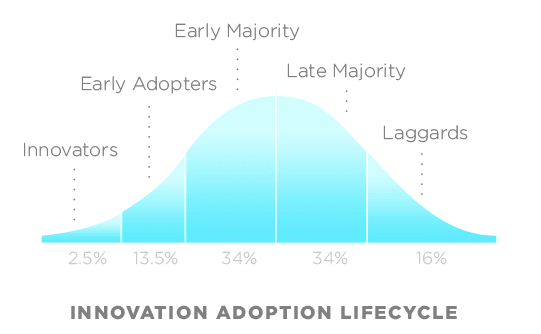As a Scrum Master, I often have new ideas about the tune-up of a team. I further develop the ideas by reading books, listening to podcast channels, and working with the developers on actionable practices. As an Agile coach in a company with over 20 Scrum Masters, I occasionally present and discuss new ideas. If my idea is too controversial or niche to the Scrum Masters, half of them will feel uncomfortable and refuse to listen to my ideas.
Being turned down has become quite common for me. Do I feel upset? Sometimes, but I have become accustomed to this.
We should accept that not everyone would accept new ideas. Many Scrum Masters in my company today are still adopting the Scrum Guide 2017. Worse still, they misunderstand Story Points are required in Scrum and overemphasise estimation versus reality, not to mention the trend has already shifted towards taking a probabilistic approach and abandoning Story Points. When Evidence-Based Management (EBM) becomes a hot topic, most Scrum Masters there do not even know what the full name of EBM is.
Ryan Ripley and Todd Miller’s “Fixing Your Scrum” mentioned that to the team members, the outside world can seem strange, ridiculous, or even behind the times. In the Scrum world, this is called the “Scrum Bubble”. On the contrary, we can seem strange and ridiculous to the outside world. Worse still, to the lagging Scrum Masters, the innovating Scrum Masters can seem even stranger and more ridiculous.
Think about it. 10% of your organisation is doing Scrum. Among these people, 10% of them are the Scrum Master. And you are the 10% of these Scrum Masters who are willing to dig deeply into the knowledge and be innovative. As being the 0.1% in the organisation. How would the rest of the company feel about your ideas? How would they accept your ideas immediately without questioning anything?

Accept the fact that not everyone is Innovators
So what should we do? Simple – be humble, and let your work speak.
No matter whether your ideas are hot topics in the world or not, your ideas are too advanced for the listeners. Your “new” idea is yet another kind of unsolicited advice to them. As mentioned in my previous article on unsolicited advice, people do not often think they have a problem. Their defensive mindset may lead to an overreaction.
Spend less time in promoting your idea. Instead, focus on doing your work. If your idea is brilliant, you will one day “be so good they can’t ignore you.” When people discover your great job, they will approach you, asking about your success story. This is the right time to promote your idea.
It is alright that the majority of the people in your organisation are not interested in your ideas, you have already done a great job by deliberately applying them. After all, the Scrum Master is accountable for the Scrum Team’s effectiveness. That is about delivering value to the customers effectively and efficiently. Your reputation is built on effective value delivery, rather than spreading ideas through endless presentations and persuasions without catching much attention.